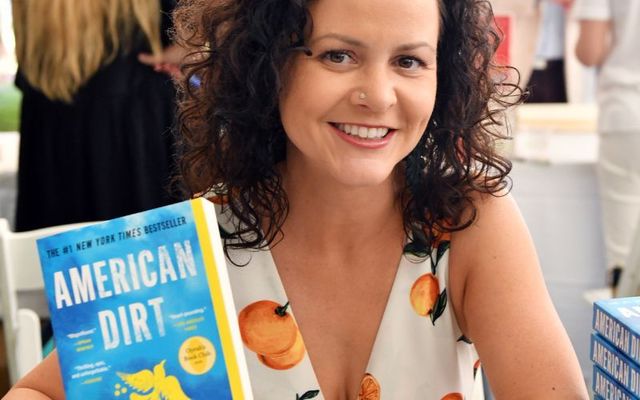Jeanine Cummins may finally be laughing. Or at least slightly less grumpy, as she counts all her money.
You don’t remember Jeanine Cummins?
For a little while, she was one of those heartwarming stories that makes you feel good about life.
Father a Navy man, mom a nurse. She had Irish roots, as her name suggests, and she was even a finalist in a 1990s Rose of Tralee contest.
In college, she spent time in Northern Ireland and even married an Irish immigrant. Fittingly, when she became a published author, she wrote about Irish characters.
In 2020, she tried something more ambitious, a novel that captures the current migrant crisis. Remember?
Oprah Winfrey and Stephen King gushed. The book, "American Dirt," flew off shelves.
Then came the tsunami. Cummins wrote about Mexican immigrants. And was not Mexican herself!
“The publicity campaign emphasized that she identified as Latina, but when it was revealed that she…was only one-quarter Puerto Rican, the backlash was fierce,” DT Max noted in a long, fascinating New Yorker article in March.
This must-read article actually suggests that Cummins’ sins were not all that bad. Or not nearly bad enough.
Max explores the complicated life of Hache Carrillo, who also wrote a book that was – kind of – rooted in real life, entitled "Loosing my Espanish."
“Published in 2004, the book had impressed critics with its bravura use of wobbly Spanish to evoke the experience of an exile whose native language has been supplanted by a new one, and with its complex interweaving of colonial history and cherished memories,” writes Max.
Most impressive? Hache Carillo was from Michigan, not Cuba. His birth name was Herman Glen Carroll.
Yet he lived his life – and wrote a book that turns out to be either much worse, or much more clever, than initial responses would suggest – as another person entirely.
In other words? At least Jeanine Cummins was 25 percent Hispanic.
Of course, some smarty pants now claim Carillo/Carroll meant to do all this, “that the novel’s ‘performance of Cubanness was mostly directed at non-Cubans.’”
Or that Carrillo was “a victim of internalized self-hatred in a racist society.”
Perhaps. But perhaps people like Cummins have long been guilty of nothing more than writing an overheated, overhyped book.
It would not be the first time such a book sold hundreds of thousands of copies. (And "American Dirt" has plenty of strengths, by the way.)
In the end, perhaps the guardians of ethnic authenticity should learn to say things like “perhaps.” Rather than, “It has not occurred to me that I might be wrong.”
No one is above criticism. But neither is any critic infallible. This business of dictating what simply can’t be done – in books, movies, TV shows – is the kind of thing that got the Catholic Church in all sorts of trouble.
And then to turn around and say, “Well, when this person does it, it’s different. And when that person there does it...”
Maybe. But maybe not.
“It was a witch hunt,” the writer Ann Patchett said, in an excellent New York Times column by Pamela Paul a few months back, recalling the "American Dirt" mess.
But this is about a lot more than one Irish-Puerto Rican writer.
Another best-selling writer, Richard North Patterson, wrote in The Wall Street Journal last month that he could not get his new novel "Trial" published. Which is a bit like Brad Pitt struggling to get a movie made.
Patterson’s sin? He decided to inhabit the mind of another (fictional) person, to “write from the perspective of (a) nonwhite character.”
No major publishing house would touch Patterson’s book. It will finally be published next month by a tiny company whose specialties include Christian books.
Which is apparently where controversial artists have to go these days.
But at least they’ll be smiling as they count their, um, blessings.
(On Twitter and Instagram: @TomDeignan)
*This column first appeared in the May 10 edition of the weekly Irish Voice newspaper, sister publication to IrishCentral.




Comments